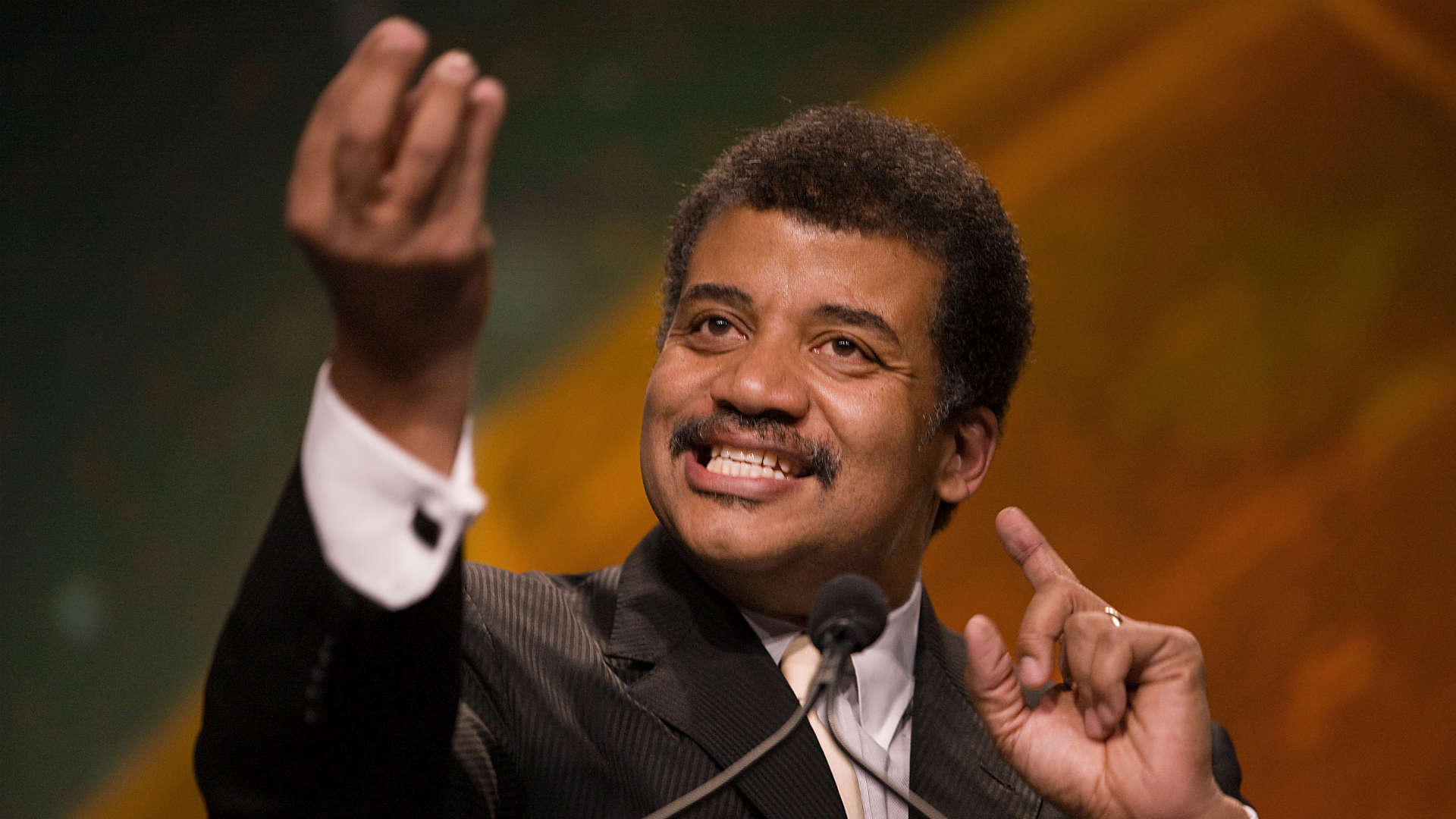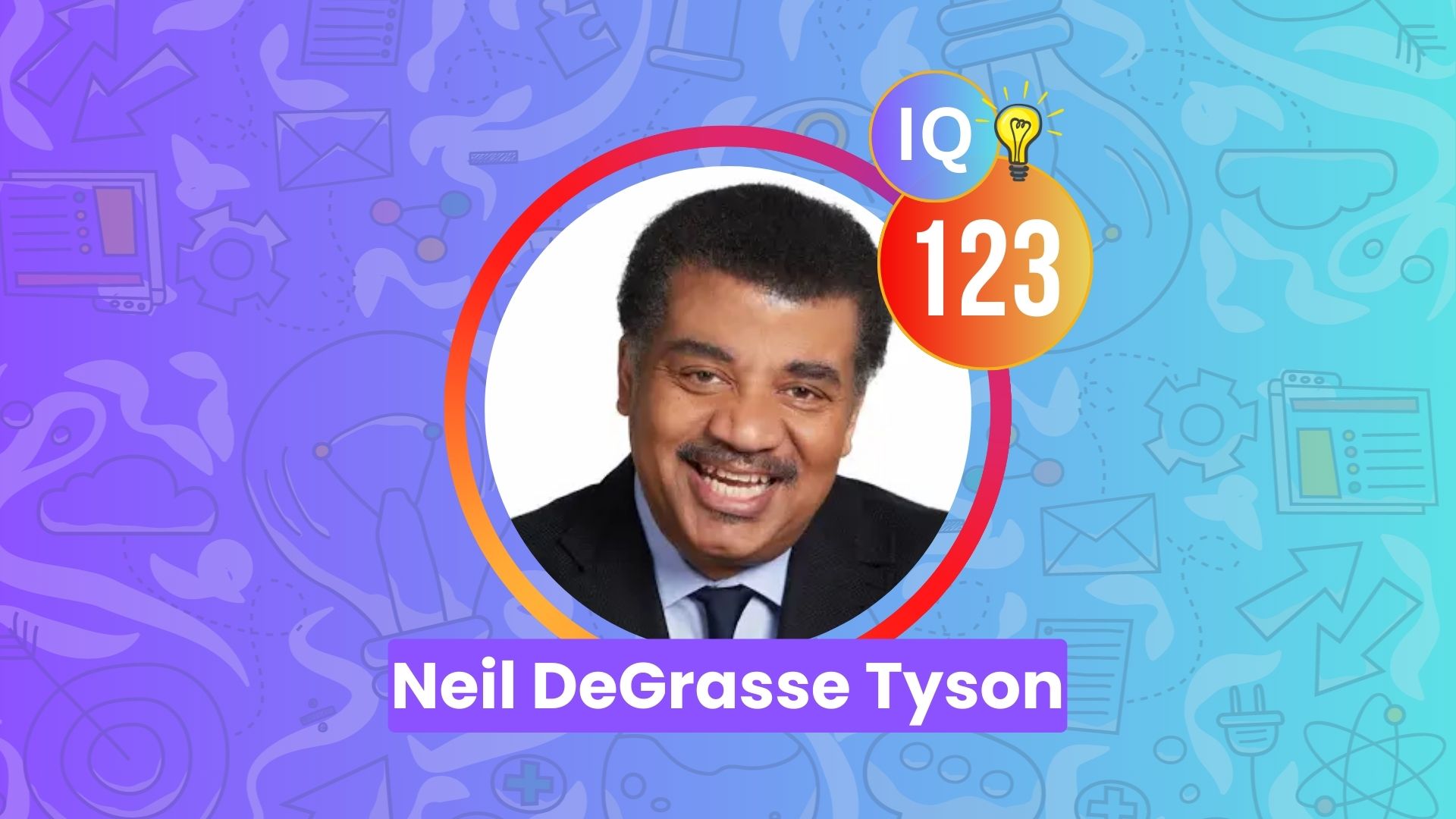So, you're wondering about Neil deGrasse Tyson's IQ, huh? The guy who makes the universe seem like a friendly neighbor? Well, buckle up because we're diving deep into the brain of one of the most celebrated astrophysicists on the planet. Whether you're a space enthusiast or just curious about what makes geniuses tick, this is the article for you. Let's explore how Neil's intellect has shaped our understanding of the cosmos and why his IQ might not be the full picture of his brilliance.
Neil deGrasse Tyson is more than just a name; he's a phenomenon. From his charismatic presence on TV to his ability to simplify mind-boggling concepts, he's brought science to the masses like no one else. But what's the deal with his IQ? Is it as astronomical as his fame? Let's find out.
This article isn't just about numbers; it's about understanding the man behind the myth. We'll explore his background, achievements, and the fascinating world of intelligence. So, whether you're here for the IQ stats or the inspiring story of a scientist who turned the stars into everyday conversation, you're in the right place.
- Unlocking The Secrets Of My Desi Mms A Journey Into Modern Communication
- Jacob Nicholas Caan The Rising Star Whorsquos Turning Heads In Hollywood
Biography of Neil deGrasse Tyson
Early Life and Education
Born on October 5, 1958, in New York City, Neil deGrasse Tyson's fascination with the cosmos began at a young age. Growing up in the Bronx, he was captivated by the night sky, often visiting the Hayden Planetarium. His early passion for astronomy set the stage for a life dedicated to exploring the universe.
Neil's educational journey is as impressive as his later achievements. He graduated from the Bronx High School of Science and went on to earn a Bachelor of Arts in Physics from Harvard University. Later, he obtained his Ph.D. in Astrophysics from Columbia University. But let's not forget the most important part—his love for science communication, which has made him a household name.
| Full Name | Neil deGrasse Tyson |
|---|---|
| Date of Birth | October 5, 1958 |
| Place of Birth | New York City, USA |
| Education | Harvard University, Columbia University |
| Profession | Astrophysicist, Science Communicator |
What's Neil deGrasse Tyson's IQ?
Alright, let's cut to the chase. What's the IQ of the man who makes black holes sound like a walk in the park? Here's the thing—Neil has never publicly disclosed his IQ score. And you know what? That's kind of the point. Intelligence isn't just about numbers; it's about how you use your mind to make a difference.
But if we were to speculate, Neil's intellectual prowess is evident in his work. He's authored over a dozen books, hosted popular TV shows like "Cosmos: A Spacetime Odyssey," and continues to inspire millions with his knowledge. His ability to simplify complex ideas suggests a mind that's not just smart but also incredibly creative.
Understanding IQ and Its Relevance
What Is IQ Anyway?
IQ, or Intelligence Quotient, is a score derived from standardized tests designed to assess human intelligence. It's a number that supposedly measures your cognitive abilities. But here's the kicker—it doesn't tell the whole story. Emotional intelligence, creativity, and problem-solving skills are just as important, if not more so, in the real world.
For someone like Neil, who spends his days explaining the mysteries of the universe, IQ might be just one piece of the puzzle. His ability to connect with people and make science accessible is a testament to his broader intelligence.
Neil deGrasse Tyson's Contributions to Science
From Pluto to Black Holes
Neil's contributions to science go beyond his IQ. He's been instrumental in reclassifying Pluto as a dwarf planet, a move that sparked both controversy and conversation. His work on black holes and dark matter has also been groundbreaking, shedding light on some of the universe's biggest mysteries.
But it's not just about the science; it's about the way he communicates it. Neil has a knack for making the complex seem simple, which is why he's become a beloved figure in the world of science communication.
Why IQ Might Not Matter
Here's the thing about IQ—it doesn't define a person's potential. Neil deGrasse Tyson's success isn't just about his intellect; it's about his passion, perseverance, and ability to inspire. He's proof that intelligence is multifaceted and that there's more to being a genius than a number.
Think about it. Some of the greatest minds in history, like Albert Einstein and Stephen Hawking, didn't let traditional measures of intelligence define them. They focused on their work, their curiosity, and their desire to make a difference. Neil's no different.
Neil deGrasse Tyson's Influence on Popular Culture
Science Meets Stardom
Neil's influence extends far beyond the scientific community. He's a cultural icon, appearing on everything from "The Late Show with Stephen Colbert" to "The Big Bang Theory." His ability to blend science with entertainment has made him a household name.
And let's not forget his role in "Cosmos: A Spacetime Odyssey," where he took viewers on a journey through the universe, making science cool again. His charisma and passion have made him a favorite among both scientists and laypeople alike.
Neil deGrasse Tyson's Approach to Education
Teaching the Stars
Neil believes in the power of education to transform lives. He's a firm advocate for STEM education and has worked tirelessly to promote science literacy. His approach is simple yet effective—make science fun, relevant, and accessible.
Through his books, TV shows, and public appearances, Neil has inspired countless young minds to pursue careers in science. His dedication to education is a testament to his belief in the power of knowledge to change the world.
Neil deGrasse Tyson's Vision for the Future
Looking to the Stars
Neil's vision for the future is as vast as the universe itself. He believes that humanity's destiny lies among the stars, and he's dedicated his life to making that vision a reality. His advocacy for space exploration and scientific research has inspired countless others to join the journey.
Whether it's through his work with NASA or his efforts to promote science education, Neil's vision is one of hope, curiosity, and discovery. He reminds us that the universe is full of wonders waiting to be explored.
Conclusion: What We've Learned About Neil deGrasse Tyson's IQ
So, what have we learned? Neil deGrasse Tyson's IQ might be a mystery, but his brilliance is undeniable. His contributions to science, his passion for education, and his ability to inspire others are the true measures of his genius.
As you ponder the mysteries of the universe, remember this—intelligence isn't just about numbers. It's about how you use your mind to make a difference. Neil's life is a testament to that truth.
Now it's your turn. Share your thoughts in the comments below. What do you think about Neil's impact on science and education? And if you enjoyed this article, don't forget to share it with your friends. Together, let's keep the conversation about science and intelligence alive.
Table of Contents
- Biography of Neil deGrasse Tyson
- Early Life and Education
- What's Neil deGrasse Tyson's IQ?
- Understanding IQ and Its Relevance
- Neil deGrasse Tyson's Contributions to Science
- Why IQ Might Not Matter
- Neil deGrasse Tyson's Influence on Popular Culture
- Neil deGrasse Tyson's Approach to Education
- Neil deGrasse Tyson's Vision for the Future
- Conclusion


